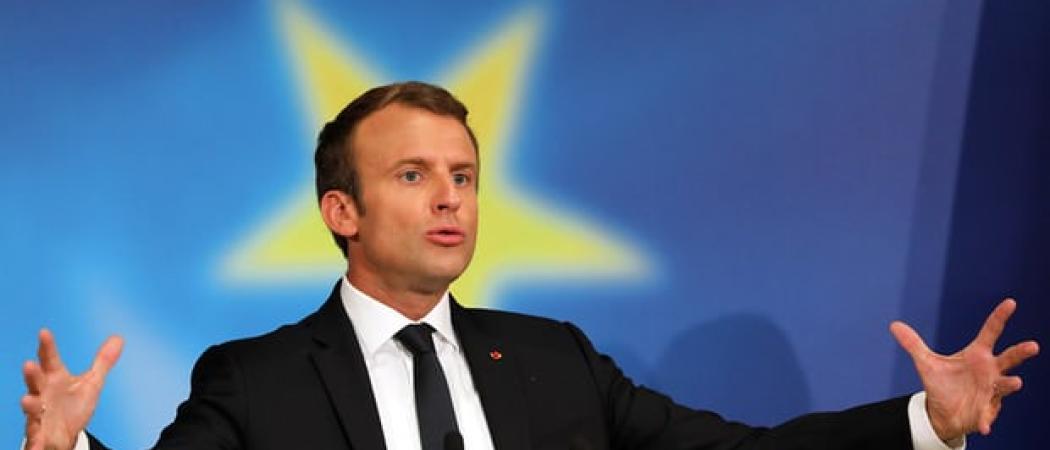Élysée urges pilot programme next year for 20 ‘European university’ networks and broad EU funding – to boost innovation, education and research

Photo: Ludovic Marin / Reuters
The French government, in a memo to other EU member-states, is urging faster, coordinated action to build networks of universities across Europe.
A memo outlining French president Emmanuel Macron’s proposals was distributed last week to ‘sherpas,’ or aides, of the 27 other European Union leaders. According to the memo, the Élysée Palace wants EU research and education funding to support the, “emergence by 2024 of around 20 ‘European universities’ that will be based on networks of four to six institutions, in at least three member states.”
The memo does not define a specific budget, but suggests that to reach the objectives each network should get at least €5 million to €6 million over five years – so, at least €100 million in total. It suggests a pilot project as early as September 2018.
The aim is to strengthen the ‘triangle’ of innovation, research and education in Europe, and to encourage more European integration in higher education – though, under one possible scenario, the networks could also be open to UK, US or other non-EU universities.
The Sorbonne Process
The French move coincides with a European Commission proposal November 14th to create a ‘European Education Area’ by 2025, which would include, in a nod to Macron, a ‘Sorbonne Process’ for mutual recognition of university and school diplomas, the creation of a School of European and Transnational Governance joining existing French, German and EU administration colleges, and a more general network of European universities. Macron first proposed university networks on September 26th at a speech on the future of Europe that he delivered from the famous Paris university; so the rapid inclusion of some of Macron’s ideas in the Commission proposal was an unusual case of fast political response in Brussels to an ascendant EU leader.
But, the French memo makes clear, the Commission’s proposed network would develop more slowly than Macron wants, starting with, among other things, cooperation in distance learning rather than large-scale formation of joint ventures among existing national universities. The Commission plan is also led by its education department, and does not yet publicly commit its more-powerful research and innovation department to support the effort with its Horizon 2020 project funds.
The Macron plan envisions small clusters of like-minded universities developing joint programmes for masters and doctoral degrees, lifelong learning courses, and research and innovation projects. The partners could also share infrastructure and some support functions, such as grant management and student enrollment. They would aim for “an integrated curriculum in several countries and languages”, with more students moving around among the universities rather than staying at home.
The EuroTech model
The four to six-member networks could be set up among neighbouring countries; have a common theme such as energy, health or digital technologies; or be ‘transversal’ – for instance involving technology universities. There are already a few existing networks that serve as examples, such as the EuroTech alliance of four technical universities or the EUCOR network of five French, Swiss and German universities in and near the Alsace region.
The funding specifics are still under discussion. The networks could apply for project funding in EU-wide competitions, managed like grant calls organised by the European Research Council. If they emulated a French programme, the ‘Grand Emprunt’ or Big Loan, they could also be allotted government endowments from which they collect the interest. Or, like the existing German “Excellence Initiative”, they could compete with other top-rated universities for supplementary funding.
Whatever the specifics, the French aim is to support development of the institutions themselves, along with individual researchers or projects. It also wants to support staff and student mobility, help universities be more competitive internationally, connect European regions, and promote innovation.
The French are seeking “a European consensus” on the next steps, with the Commission launching a public consultation by March 2018. This would lead to a call for projects and the creation of at least five networks by 2020.





 A unique international forum for public research organisations and companies to connect their external engagement with strategic interests around their R&D system.
A unique international forum for public research organisations and companies to connect their external engagement with strategic interests around their R&D system.